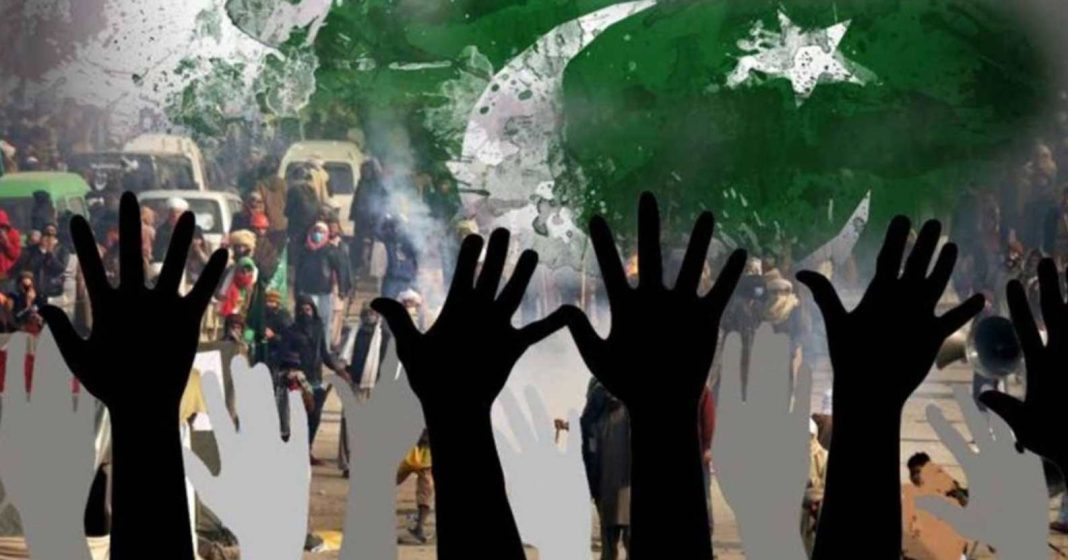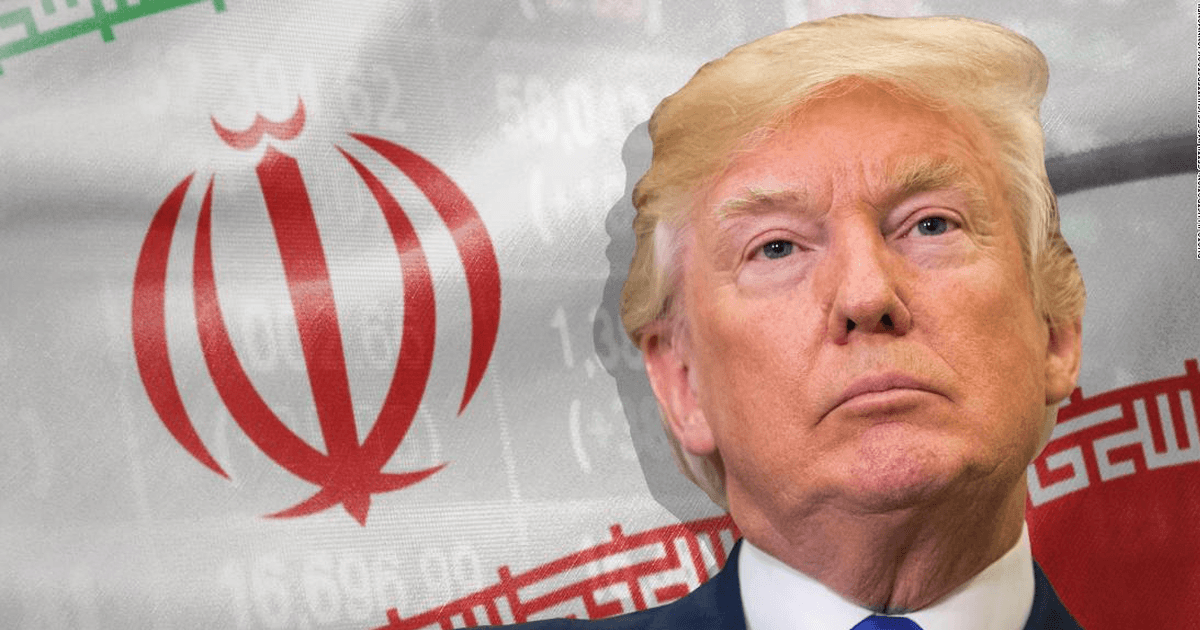The Pakistani community in Florida gathered at the Rosen College of Hospitality Management in Orlando, affiliated with the University of Central Florida, to hold a seminar addressing the pressing political, legal, and human rights crises in Pakistan. The esteemed panel comprised distinguished individuals, including former Pakistani anchorperson Barrister Ehtesham Amir-ud-Din; Hussain Nadim, Professor of Practice in International Affairs at George Washington University; Hassan Abbas, a distinguished Professor of International Relations at the National Defense University, Washington D.C.; and Zeynab Ali, Adjunct Professor at New York University. Additionally, American author and former Washington, D.C. bureau chief for The Intercept, Ryan Grim, and journalist Murtaza Hussain joined the discussion online from Washington and New York, respectively. The three-hour session was skillfully moderated by Dr. Moeed Pirzada, a prominent TV anchor and founding editor of Global Village Space (GVS), who is currently based in Washington.
Message for Pakistani Americans in and around Orlando, Tampa, Daytona, Gainesville (Florida) & adjacent areas!
If you can spare time, today, on Sunday, 29th September, between 1-4pm, Please join in an interactive debate on the challenges facing Pakistan and how we may help in… pic.twitter.com/cQIrMDNPTK— Moeed Pirzada (@MoeedNj) September 29, 2024
A Gathering of Voices
The seminar saw a significant turnout from the Pakistani diaspora, with participants traveling from cities such as Orlando, Tampa, and Jacksonville. A key feature of the event was the adoption of a comprehensive resolution outlining critical demands addressed to the Pakistani government. Foremost among these was the restoration of civilian supremacy, stressing that the military must function strictly within its constitutional framework, respecting civilian authority and the rule of law. The resolution underscored that no institution or individual should be above the Constitution.
The resolution also advocated for the protection of an independent judiciary and a free press, essential pillars of democracy, calling for their protection from censorship, intimidation, and undue influence. Additionally, it demanded an end to military interference in politics, urging the military to withdraw from civilian governance, political engineering, and repression, thereby allowing political parties and candidates to operate freely in a democratic environment.
Ensuring Electoral Integrity and Accountability
To safeguard electoral integrity, the resolution called for transparent electoral processes free from military involvement and suggested the consideration of Electronic Voting Machines (EVMs) to bolster election credibility. It also emphasized accountability through the enforcement of Article 6 of the Constitution, ensuring that those who undermine democratic principles face consequences in accordance with the law. Further, the resolution demanded the immediate release of political prisoners, including opposition leaders and activists, and the cessation of military trials for civilians, which violate human rights and international standards. Civil liberties, including freedom of speech, assembly, and the right to a fair trial, were highlighted, with a strong call for an end to state-sponsored abductions, torture, and violence.
The participants urged the resignation of unconstitutional power holders, particularly those manipulating the system through personalized legislation or unconstitutional extensions. To address past and ongoing violations, the resolution proposed the establishment of a Truth and Reconciliation Commission to ensure transparency, accountability, and national healing. Lastly, it called for a thorough investigation into allegations of election rigging by the military establishment, addressing the stolen mandate to prevent further destabilization of the country. This resolution reflected the diaspora’s collective commitment to advocating for democratic governance and civil rights in Pakistan.
Insights from the Panelists
During the seminar, attendees participated in a thought-provoking poll regarding who they believed had caused more damage to Pakistan among four prominent figures: Chief Justice Qazi Faez Isa, Army Chief Asim Munir, Prime Minister Shehbaz Sharif, and President Asif Ali Zardari. Remarkably, approximately 70% of participants identified Army Chief Asim Munir as the primary individual responsible for the country’s crises. Chief Justice Qazi Faez Isa followed as the second most blamed figure, while Prime Minister Shehbaz Sharif and President Asif Ali Zardari received lesser percentages of disapproval, underscoring the prevailing sentiment regarding military influence and accountability in Pakistan’s current challenges.
Pakistani American community & First Pakistan Global held a conference at UCF, Florida, on Sep 29 to address human rights violations & political instability in Pakistan.
63% of attendees held Gen Munir responsible for the crisis, demanding his resignation for violating his oath… pic.twitter.com/zGtnOp9KSl
— FirstPakistanGlobal (@FirstPakGlobal) October 4, 2024
The seminar began with Dr. Moeed Pirzada offering a detailed overview of Pakistan’s current political and legal crises. He highlighted the government’s efforts to reduce the powers of the Supreme Court by establishing a constitutional court and appointing Chief Justice Qazi Faez Isa as its head. Dr. Pirzada explained that Qazi Faez Isa aims to overturn Article 63-A, a key provision that currently curbs horse trading. If overturned, this would allow the government to manipulate parliamentary support and push through the “constitutional reform package.”
Media Coverage and Human Rights
Ryan Grim, co-founder of Drop Site News and host of the Deconstructed podcast, addressed a question regarding the insufficient coverage by U.S. media of human rights violations and other critical issues in Pakistan, particularly concerning fundamental principles such as democracy and the rule of law. He observed that U.S. media often centers on a single dominant news story, with other issues needing to align with or fit within that narrative to gain attention. He cited the example of the Russia-Ukraine war, which has recently been overshadowed by the Israel-Gaza conflict, illustrating the transient nature of media attention in the United States.
Professor Hassan Abbas, a renowned scholar in South Asian and Middle Eastern studies, inquired about the state of journalism in Pakistan. In response, Grim recounted instances where the establishment had directed the media to impose a ban on mentioning Imran Khan. Grim emphasized that the Pakistani media cannot be criticized when it faces such oppressive constraints. Murtaza Hussain reflected on his experiences of being labeled a “Zionist conspirator” for his honest reporting on the situation in Pakistan. He expressed admiration for many Pakistani journalists who, despite facing significant personal risks, continue to report courageously and truthfully.
A Collective Call for Change
Zeynab Ali remarked on the persistent structural issues affecting press freedom in Pakistan, stating that these problems extend beyond the country and exist in the U.S. as well. Ryan Grim elaborated on this, specifically mentioning the influence of pro-Israeli organizations within U.S. institutions, including colleges, Congress, and the media.
Professor Hassan Abbas discussed the deteriorating state of services and the incompetence of the bureaucracy in Pakistan over time. However, he also highlighted a growing resistance among the Pakistani populace, particularly among the youth—approximately two-thirds of the country’s population is under 30 years of age. This generation is not only educated and aware of its rights but also unwilling to accept illegitimate power. He characterized Pakistan as a “national security state,” asserting that the power holders and their global allies now have high stakes in maintaining this status.
Navigating the Current Turbulence
Professor Hussain Nadim initiated his discussion with a thought-provoking quote from Italian philosopher Antonio Gramsci: “The old is dying and the new is yet to be born; now is the time of monsters.” He used this quote to illustrate the current turbulence in Pakistan, where the centralization of state power is facing significant challenges, particularly from the rise of social media. Professor Nadim emphasized that this shift represents a crucial moment for the country, highlighting the need for core institutional reforms to address the underlying issues. He asserted that no single individual can resolve the complex situation; rather, a collective effort is required to foster meaningful change and navigate the transformative landscape of power in Pakistan.
Barrister Ehtesham discussed the long-standing crises in Pakistan, tracing their roots back to the first-ever application of the Doctrine of Necessity in the Maulvi Tamizuddin case. However, he noted that the current situation is unprecedented in its severity. He pointed out that measures such as banning a person’s name—referring specifically to the ban on Imran Khan—were not witnessed even during previous martial laws. Ehtesham emphasized that the current violations of human rights and the aggressive crackdown on media freedom are unparalleled in the country’s history, even during its most turbulent periods. This alarming trend underscores the need for urgent attention to safeguard democratic principles and human rights in Pakistan.
A Platform for Dialogue and Action
The seminar held in Florida served as a crucial platform for discussing the political, legal, and human rights crises currently plaguing Pakistan. The esteemed panelists provided invaluable insights into the complex dynamics of power, governance, and media freedom in the country, emphasizing the urgent need for institutional reforms and the restoration of civilian supremacy. The adoption of a comprehensive resolution by the attendees not only highlighted the collective aspirations of the diaspora for a democratic Pakistan but also underscored the importance of accountability and the protection of civil liberties.
The candid discussions on media constraints, youth resistance to authoritarianism, and the implications of military influence illustrated a growing consensus on the path forward. As the Pakistani diaspora continues to advocate for change, their commitment to upholding democratic values and human rights remains a beacon of hope for the future of Pakistan. This seminar marked a significant step towards fostering dialogue, raising awareness, and mobilizing support for a more just and equitable society in Pakistan.
Previous Events and Future Engagements
Previously, the Pakistani diaspora had organized a similar event in New Jersey. Members of the Pakistani American community, along with First Pakistan Global based in Washington, convened the “Pakistan Civil and Human Rights Conference” in Piscataway, New Jersey. The event gathered over 500 professionals, activists, and community leaders from across New Jersey and New York, making it one of the largest of its kind in recent months. The attendees addressed the human rights crisis and political instability in Pakistan, with notable calls for Army Chief Gen. Asim Munir’s resignation, marking a significant moment in the diaspora’s advocacy for democratic governance and civilian supremacy in Pakistan.
Press Release: Pakistani American Community Leads Civil and Human Rights Conference in New Jersey
New Jersey, August 25, 2024 – The Pakistani American community in New Jersey, along with First Pakistan Global, organized a pivotal conference at the Holiday Inn Events Center in… pic.twitter.com/Vfn1WeP8dp
— FirstPakistanGlobal (@FirstPakGlobal) August 28, 2024
The Pakistani community aims to organize similar events across the United States to engage and activate the Pakistani-American diaspora. These gatherings are crucial for mobilizing educated individuals to influence their local congressmen and senators, fostering awareness and advocacy on issues concerning Pakistan. Interestingly, the panel did not include any members of the Pakistan Tehreek-i-Insaf (PTI), despite the proximity of key PTI figures such as former Deputy Speaker Qasim Suri, former State Minister for Interior Shehryar Afridi, and Imran Khan’s Chief of Staff Shehbaz Gill. This decision was intentional, to underline that the event was not politically driven but focused on addressing Pakistan’s current crises and its future direction.
Watch the full discussion below:













